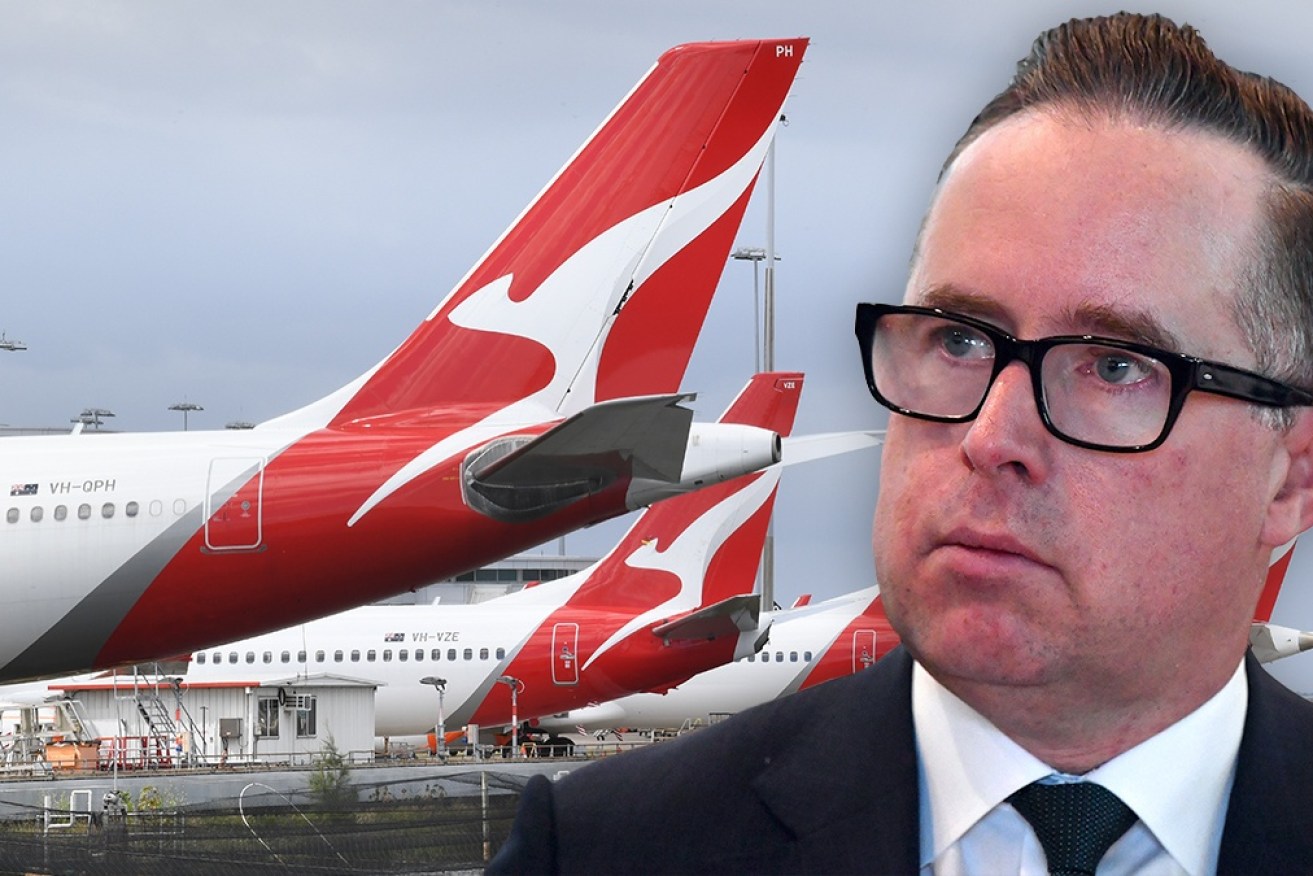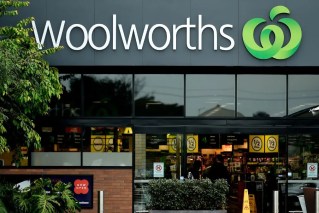Michael Pascoe: The greed undermining privatisation and demutualisation


A leadership race to replace Alan Joyce as CEO could be heating up. Photo: TND
The spectacular burst of customer dissatisfaction with Qantas has focused a laser on the perceived failures of privatising government businesses – letting various investment bankers, ticket clippers and would-be robber barons make off with assets of the common wealth.
But it is not just privatisations of government assets that seem to have a problem.
The same pattern can be found in the demutualisation industry. Anyone for a piece of the former AMP Society?
The interesting thing is that searching for the cause of unhappy privatisation and demutualisation stories throws up a broader sickness at the heart of corporate excess: Executive greed and an unhealthy concentration on the “shareholder value” metric.
Crikey’s Bernard Keane took fair aim at privatisation failures in light of Qantas’ fall from grace.
“Around the world, corporatisation and privatisation have been the tools of choice for governments to deal with overstaffing of government organisations, often with highly unionised workers. But in the case of Qantas, management continues to attack its own workforce decades after the point where any “featherbedding” has been consigned to the history books,” Keane wrote.
“Telstra and Qantas also delivered systemic failure as a result of privatisation.

The effects of the privatisation of Telstra has also come under fire.
“In selling Telstra, the Howard government sold its capacity to build major communications infrastructure. When Telstra refused to deliver even the most basic communications infrastructure required by Australians for internet services, Labor had to rebuild its capacity to design and deliver major infrastructure from the ground up via NBN Co, leading to extensive delays in the rollout of the NBN even without the Coalition wrecking it …
“The Commonwealth Bank’s failure was less sins of omission than commission. It turned on its own customers, seeing them not as clients with needs to be served or fellow Australians, but as easy marks to be gouged, exploited, ripped off and immiserated in the name of parting them from their money.”
How is it that previously solid citizens can go so bad when privatised or demutualised?
It is by making the share price pretty much the sole focus of the enterprise. Everything else recedes to a distant third or fourth as attention is lavished on forever increasing the bottom line, share buybacks and massaging market expectations – the things that drive “total return” and its twin “shareholder value” higher.
Because that is the KPI that counts most for CEOs.
The one sure bet with any privatisation or demutualisation is that the occupants of the C-suite will immediately be paid much more for doing pretty much the same job. Ditto the board of directors.
The CEO’s pay packet in particular soars when freed from government or mutual ownership.
From a philosophical point of view, I’ve sometimes wondered what sort of people don’t do their job to the best of their ability for, say, $1 million a year and find ways to be much better if paid $5 million? Or what do board members think a CEO will do differently if given or not given a very fat bonus on top of a very fat salary?
If you’re worried about wage/price spirals, you better not look at what happens to CEO wages upon privatisation/demutualisation.
For example, Lance Hockridge was running the Queensland government’s QR National for just under $1 million the year before it was privatised and floated off as Aurizon in 2010.
The next year he was paid $2.3 million. By 2013, he was one of the nation’s highest-paid CEOs with total pay of $6.1 million – and the board copped a “first strike” vote by shareholders against their remuneration report.
But you can pick just about any privatisation or demutualisation to see CEO pay hyperinflation at work.
Mark Fitzgibbon was paid half a million dollars in NIB’s last year as a health insurance mutual. He’s now on $3 million.

The demutualisation of AMP did not go to plan. Photo: AAP
The sorry sagas of the AMP, NRMA and St George demutualisations all started with CEO (and board) pay skyrocketing.
The potential for demutualisation or privatisation attracts some executives to the public and mutual sectors. The crew disastrously brought in to dress up the NSW government workers insurance company, icare, had their collective eye on the prize of privatisation. That didn’t work out so well for anyone.
Driving the pay escalation is the concept of “shareholder value” (i.e. the share price). A paper by James Montier seven years ago proposed “shareholder value” was the finance world’s dumbest idea.
As I wrote at the time, if Mr Montier’s paper was correct, it would mean a couple of decades of governance reform would be turned on its head and flushed down the boardroom toilet.
It would mean countless remuneration consultants would be exposed as frauds. It would mean the world’s shareholders had been taken for a very expensive ride by CEOs incentivised to make capitalism worse for everyone – except themselves.
Mr Montier demonstrated that in the “Age of Managerialism” from 1940 to 1990, corporate underlying performance was pretty much the same as total return, but once “shareholder value” become the main KPI, underlying performance fell away as valuations were boosted without improving the real business.
It was with this KPI that CEO salaries departed from the same universe as mere workers.
The rise and rise of share buybacks have been the main tool for separating “shareholder value” from underlying returns.
An Economist report on the Montier paper concluded: ‘‘CEOs can be forgiven for pursuing a “get rich quick” strategy; since the 1970s the average tenure of a CEO has fallen from almost 12 years to six. Why would they care about long-term value? And while buybacks may return money to those shareholders who take advantage of them, they may damage long-term investors; the peak for buybacks was in early 2008, just when the market was about to crash. As Warren Buffett has said, this was the equivalent of buying dollar bills for $1.10.”
CEOs of mutuals and government-owned enterprises tend not to have a focus on getting rich quick – quick fixes don’t work for them.
Guess what Australian company spent $637 million buying back its own shares the year before COVID hit? (Almost twice as much as it paid out in dividends.)
Yep, none other than our biggest (and wealthiest) welfare recipient, Qantas.
Qantas has seized control of what used to be the agrarian socialism formula of privatising profits and socialising losses.
The government was too dopey to follow the American GFC lead of taking equity when bailing companies deemed too important to fail.
An opportunity lost – the chance to reinstate the steadying influence of the common wealth investing for the long term.








